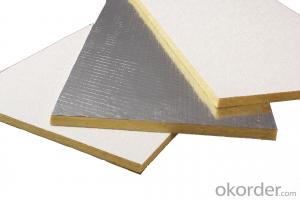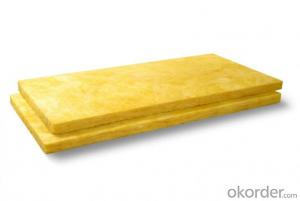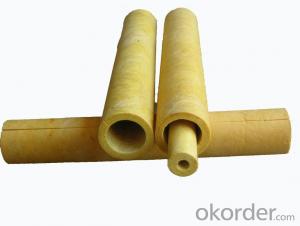Thermal Insulation And fireproof thermal conductivity glass wool insulation glass wool
- Loading Port:
- Tianjin
- Payment Terms:
- TT OR LC
- Min Order Qty:
- 5000 m²
- Supply Capability:
- 20000 m²/month
OKorder Service Pledge
OKorder Financial Service
You Might Also Like
1.Description of Glass Wool Blanket:
Glass Wool Blanket complete glass wool production lines employing latestgeneration technology to manufacture boards, rolled blankets and pipes for residential and industrial thermal and acoustic insulation needs, in compliance with the
top international standards (EN, DIN, ASTM).
Its merit is better in shape, low density and volume, low in thermal conduction, better heat preservation and thermal insulation, fine sound absorption, corrosion-resistant and stable chemical property. Glass wool blanket, glass wool board, glass wool pipe, which made from glass wool, largely use in construction, chemical, electronic, electricity, metallurgy, energy industry and community with good performance in heat preservation, heat insulation, sound absorption.
2.Main features of Glass Wool Blanket:
d): acoustical property
The inside of glass wool is multiaperture, which enhance its absorption quality greatly and thus increase the comfort level of indoor environment.
e): structure quack-proof
Reedy fiber of glass wool lead to better performance in strength in structure, stretching resistance, anti-quack. NO phenomenon of drooping, scatter, collapse emerges in installation and long-term usage.
f): chemical property
Glass woo, with fine property in stable size, can withst and high temperature, thunder, rain, sun shining, acid and alkali and other human and natural factors.
3.Glass Wool Blanket Images:
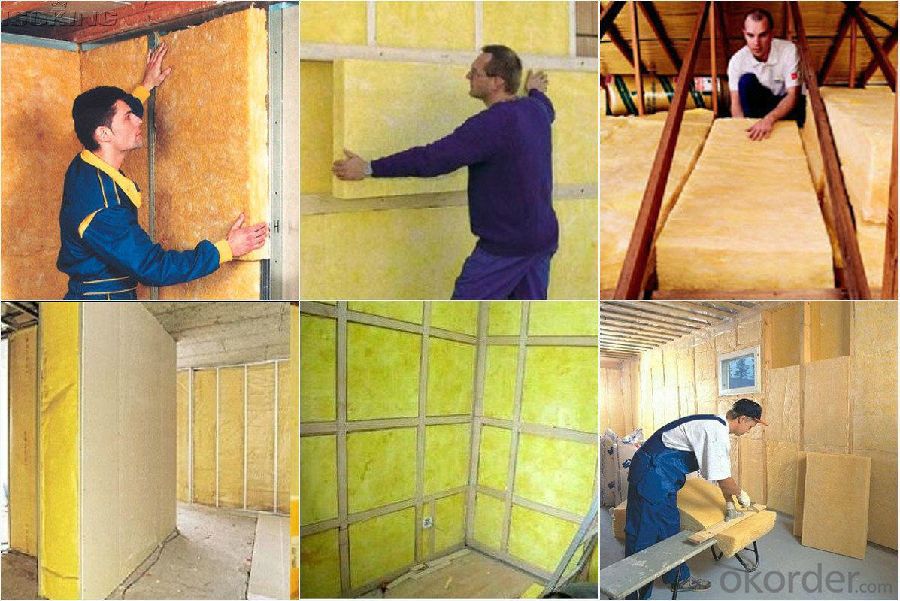
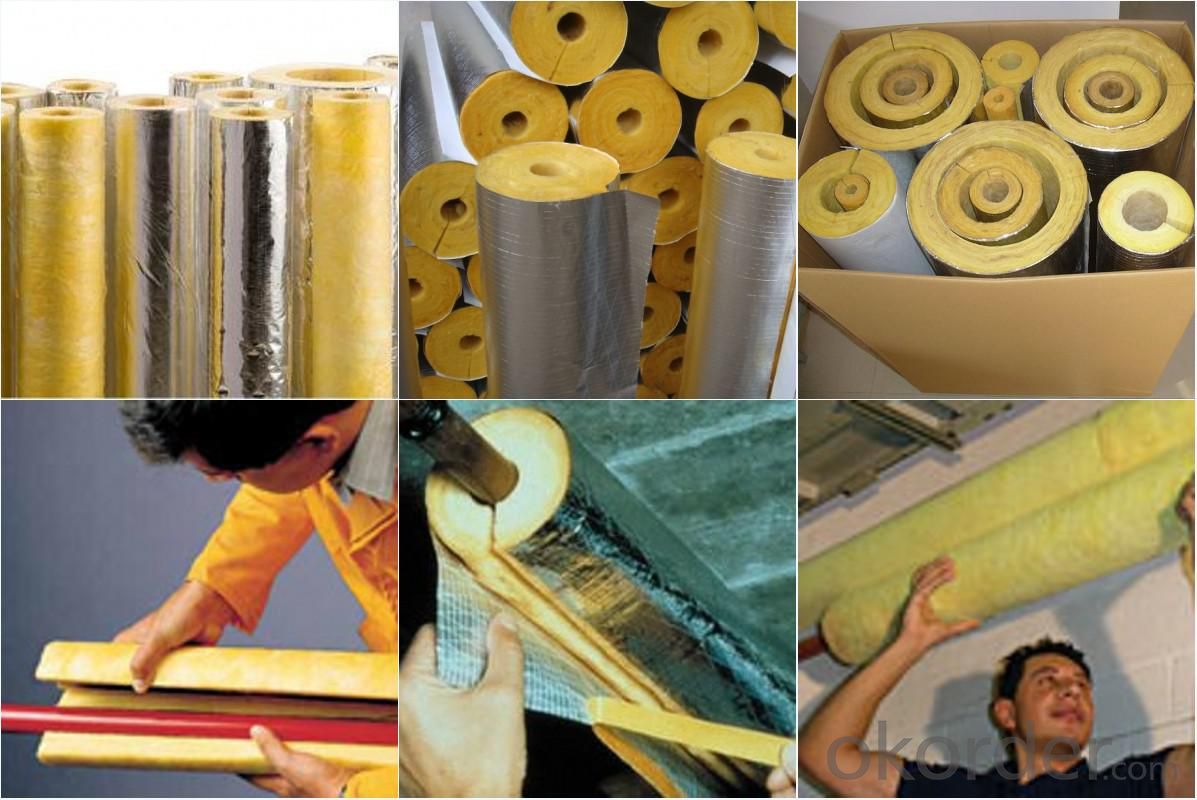
4. Glass Wool Insulation Blanket Technical Parameters:
Property | High/low temperature resistance, oil and fuel resistance, weathering resistance, O zone resistance etc. |
Shape | According to your requirement. |
Color | Any color is available ,according to your requirements. |
Material | NBR, CR, SBR, EPDM, IIR, NR, EP, Silicone, VITON etc. |
Hardness | 30-90ShoreA |
Delivery | In 10 days |
Packing | Plastic bag & carton box or according to your requirements. |
Application | Electronic field, industrial machine & equipment, house-hold appliance, telecommunication, automobile, medical equipment industry etc. |
5.FAQ
We have organized several common questions for our clients,may help you sincerely:
①How about your company?
A world class manufacturer & supplier of Glass Wool Blanket is one of the large scale professional investment casting production bases in China,consisting of both casting foundry forging and machining factory. Annually more than 8000 tons Precision casting and forging parts are exported to markets in Europe,America and Japan. OEM casting and forging service available according to customer’s requirement.
②How to guarantee the quality of the products?
We have established the international advanced quality management system every link from raw material to final product we have strict quality test; We resolutely put an end to unqualified products flowing into the market. At the same time, we will provide necessary follow-up service assurance.
- Q:Can fiberglass mat tissue be used for bridge construction?
- Yes, fiberglass mat tissue can be used for bridge construction. It is often used as a reinforcement material in the construction of bridges due to its high strength, durability, and resistance to corrosion. It helps to improve the overall structural integrity and longevity of the bridge.
- Q:Can fiberglass mat tissue be used for automotive repairs?
- Yes, fiberglass mat tissue can be used for automotive repairs. It is commonly used for reinforcing and repairing various parts of a vehicle, such as body panels, bumpers, and interior components. The fiberglass mat tissue provides strength, durability, and flexibility, making it an ideal material for automotive repairs.
- Q:Does fiberglass mat tissue absorb water?
- Yes, fiberglass mat tissue does absorb water.
- Q:What are the different thickness tolerances for fiberglass mat tissue?
- The different thickness tolerances for fiberglass mat tissue can vary depending on the specific product and manufacturer. However, common thickness tolerances range from +/- 0.001 inches to +/- 0.005 inches.
- Q:Is fiberglass mat tissue suitable for railway infrastructure?
- Yes, fiberglass mat tissue is suitable for railway infrastructure. Fiberglass mat tissue is a strong and durable material that offers excellent resistance to corrosion, weathering, and chemical degradation. It is commonly used in the construction industry for reinforcing structures such as bridges, tunnels, and platforms. In the case of railway infrastructure, fiberglass mat tissue can provide several benefits. Firstly, it has high tensile strength, which means it can withstand the heavy loads and vibrations associated with train traffic. This helps to prevent cracking and structural damage, ensuring the longevity and safety of the railway system. Additionally, fiberglass mat tissue is non-conductive, which is a crucial characteristic for railway infrastructure. It helps to prevent the risk of electrical shocks and short circuits, which are common concerns in rail networks. This makes fiberglass mat tissue a reliable choice for railway infrastructure, especially in areas where electrical lines are present. Furthermore, fiberglass mat tissue is lightweight and easy to handle, making it convenient for installation in railway projects. It is also resistant to fire, making it a safe choice for railway infrastructure in terms of fire protection. Overall, fiberglass mat tissue is a suitable material for railway infrastructure due to its strength, durability, non-conductive nature, and fire resistance. Its use in railway construction can contribute to the reliability, longevity, and safety of the railway system.
- Q:Is fiberglass mat tissue compatible with different curing methods?
- Yes, fiberglass mat tissue is compatible with different curing methods. Fiberglass mat tissue is a versatile material that can be used in various curing processes, such as hot press curing, autoclave curing, and vacuum bag curing. The mat tissue is designed to be compatible with different resins and curing temperatures, ensuring that it can withstand the curing process without any adverse effects. Additionally, the mat tissue is engineered to have good wet-out properties, allowing it to effectively bond with the resin during curing. Overall, fiberglass mat tissue is a suitable choice for different curing methods and can be successfully used in a wide range of applications.
- Q:Is fiberglass mat tissue suitable for automotive body panel repairs?
- Indeed, automotive body panel repairs can be successfully carried out using fiberglass mat tissue. This material, known for its robustness, endurance, and adaptability, is widely employed in automotive repairs. Its exceptional ability to conform to the distinctive curves of a vehicle makes it particularly effective in fixing body panels. Moreover, fiberglass mat tissue boasts resistance against corrosion, moisture, and chemicals, rendering it a prime selection for automotive purposes. Furthermore, its lightweight nature aids in reducing the overall weight of the vehicle, thereby enhancing fuel efficiency. All in all, fiberglass mat tissue proves to be a dependable and efficient choice for automotive body panel repairs.
- Q:Can fiberglass mat tissue be used for acoustic insulation?
- Indeed, acoustic insulation can be achieved by utilizing fiberglass mat tissue. This lightweight material possesses remarkable sound absorption qualities, allowing it to proficiently absorb and diminish sound waves, thereby reducing noise levels and enhancing the acoustic atmosphere. In the realm of construction, fiberglass mat tissue is widely employed to insulate walls, ceilings, and floors in order to minimize noise propagation. Moreover, it finds application in the automotive sector and various other industries that demand sound insulation. With its exceptional porosity and fibrous composition, fiberglass mat tissue proves to be an optimal substance for sound wave absorption and attenuation, rendering it highly suitable for acoustic insulation purposes.
- Q:How does fiberglass mat tissue compare to polystyrene insulation?
- Fiberglass mat tissue and polystyrene insulation are two different materials used for insulation purposes, and they have their own distinct characteristics and benefits. Fiberglass mat tissue is made from thin strands of glass fibers that are woven together to form a mat. It is commonly used in applications where heat and sound insulation is required. Fiberglass mat tissue is known for its excellent thermal insulation properties, as it can effectively resist heat transfer, making it suitable for both hot and cold environments. Additionally, it is resistant to moisture and does not promote the growth of mold or mildew. On the other hand, polystyrene insulation is a foam material made from expanded polystyrene beads. It is widely used in the construction industry as it provides good thermal insulation and can be easily shaped or cut to fit various spaces. Polystyrene insulation is known for its high compressive strength, making it ideal for load-bearing applications. It is also moisture-resistant, lightweight, and has excellent resistance to aging and degradation. When comparing fiberglass mat tissue to polystyrene insulation, there are a few key differences to consider. Fiberglass mat tissue is generally more flexible and can be easier to install in irregular or curved surfaces. It is also more resistant to fire, as it does not burn or release toxic gases when exposed to flames. However, fiberglass mat tissue can be more expensive than polystyrene insulation and may require additional protective measures, such as wearing gloves and masks during installation, due to its potential for skin and respiratory irritation. Polystyrene insulation, on the other hand, is less expensive and easier to handle and install compared to fiberglass mat tissue. It also has better moisture resistance, which makes it suitable for applications in areas with high humidity or potential water exposure. However, polystyrene insulation is more flammable than fiberglass mat tissue and can release toxic gases when burned. In conclusion, the choice between fiberglass mat tissue and polystyrene insulation depends on the specific requirements of the insulation project. Fiberglass mat tissue is well-suited for its excellent thermal insulation properties, fire resistance, and resistance to moisture and mold. Polystyrene insulation, on the other hand, offers good thermal insulation, ease of installation, and high compressive strength. Ultimately, it is important to consider factors such as cost, installation requirements, fire resistance, and moisture resistance when deciding between fiberglass mat tissue and polystyrene insulation.
- Q:What are the different surface textures available for fiberglass mat tissue?
- Some of the different surface textures available for fiberglass mat tissue include smooth, coarse, textured, embossed, and patterned.
1. Manufacturer Overview |
|
|---|---|
| Location | |
| Year Established | |
| Annual Output Value | |
| Main Markets | |
| Company Certifications | |
2. Manufacturer Certificates |
|
|---|---|
| a) Certification Name | |
| Range | |
| Reference | |
| Validity Period | |
3. Manufacturer Capability |
|
|---|---|
| a)Trade Capacity | |
| Nearest Port | |
| Export Percentage | |
| No.of Employees in Trade Department | |
| Language Spoken: | |
| b)Factory Information | |
| Factory Size: | |
| No. of Production Lines | |
| Contract Manufacturing | |
| Product Price Range | |
Send your message to us
Thermal Insulation And fireproof thermal conductivity glass wool insulation glass wool
- Loading Port:
- Tianjin
- Payment Terms:
- TT OR LC
- Min Order Qty:
- 5000 m²
- Supply Capability:
- 20000 m²/month
OKorder Service Pledge
OKorder Financial Service
Similar products
New products
Hot products
Hot Searches
Related keywords
